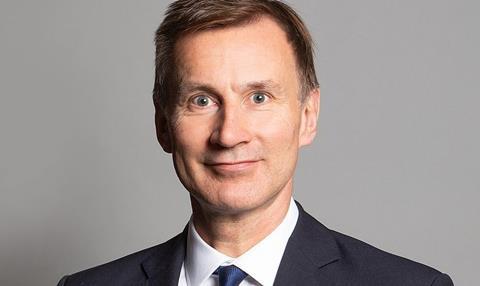Chancellor Jeremy Hunt has delivered the 2024 Spring Budget, reporting a projected fall below target in inflation in the coming months and a reduction in the national insurance contribution rate.

In response, a spokesperson for the Association of Independent Meat Suppliers (AIMS) said: "This was neither a budget for the meat processing sector nor for the wider food industry.
"Nowhere in the speech was the word ‘exports’ used, though the Chancellor did make it clear - despite our desperate need for labour and in particular skilled butchers - their plan 'is for economic growth not sustained through migration but one that raises wages...'.
"Productivity driven growth is essential for every AIMS member and for that they need affordable and skilled staff.
"Reading the Treasury ‘Red Book’ which accompanies today’s Budget we note that (point 5.125) 'the Government is announcing that it will shortly be launching the Taskforce, which will investigate how best to support the adoption of digital technology by SMEs in order to boost their productivity'. We will be interested to read the detail as well as the additional details of the agri-food launchpad for Mid and North Wales.
"We welcome the '£7.4 million AI Upskilling Fund pilot that will help SMEs develop the AI skills of the future' but do wonder if this is anywhere near enough of an investment when the economy at large is built around SMEs."
NFU points to missed opportunities following Budget speech
Responding to the Budget, NFU president Tom Bradshaw said: “Where some of the headline announcements, such as an extension to agricultural property relief (APR) and a reduction of National Insurance for the self-employed, could offer some benefits to agricultural businesses, the Chancellor has missed an opportunity to deliver resilience for food producers."
He continued: “We welcome the Government backing the NFU’s call for the extension of APR to land in Environmental Land Management (ELM) schemes as it will remove a barrier of entry for a number of farm businesses and give farmers more choice about how to use their land. But the extension of this beyond ELMs may have an adverse impact on food production and farm tenancies and we will work with Treasury to assess those implications.
FDF highlight fall in food production investment
Karen Betts, CEO of the Food and Drink Federation (FDF), added: “It’s great to see the Chancellor’s acknowledgement of the impact of inflation on households with his cut to National Insurance... But the costs of recent turbulence to our sector are real, and are illustrated in stark terms by a steep fall in investment in food and drink manufacturing, which declined by a third last year compared to 2019. Our country needs a strong food and drink sector – which underpins our food security, as well as hundreds of thousands of jobs and forward-looking science and innovation."
In the Budget speech it was announced that:
- As of April, the national insurance contribution rate will be reduced from 10% to 8%
- The Office for Budget Responsibility (OBR) expects inflation to fall below the target of 2% in the coming months
- The higher rate of property capital gains tax will be reduced from 28% to 24%
- OBR predicts that underlying debt will fall as a share of the economy to 92.9% in 2028/29.
This story was originally published on a previous version of the Meat Management website and so there may be some missing images and formatting issues.















